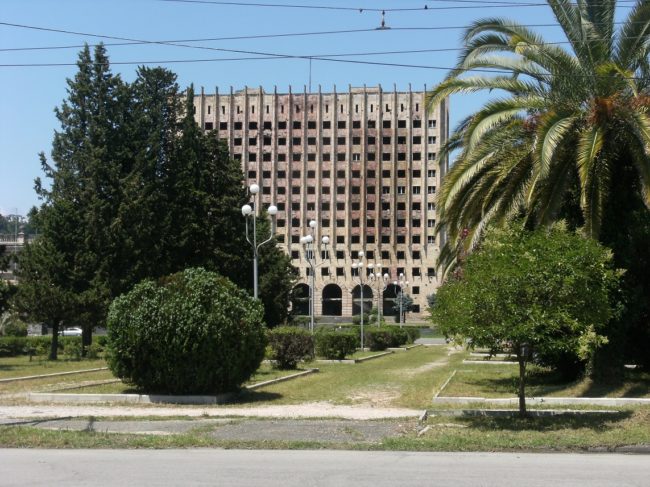

 Twenty-five recently identified bodies of people who died during the 1992–1993 conflict in Abkhazia are to be brought from Abkhazia to Tbilisi, according to Georgia’s Ministry of IDPs.
Twenty-five recently identified bodies of people who died during the 1992–1993 conflict in Abkhazia are to be brought from Abkhazia to Tbilisi, according to Georgia’s Ministry of IDPs.
The bodies will be buried at the Dighomi Brothers’ Cemetery in Tbilisi on 17 October. A public funeral will be held at the Holy Trinity Cathedral a day earlier.
The deceased were all either killed or declared missing during the war.
‘All of these 25 people are heroes, but among them are people who were protecting the Supreme Council in Sokhumi with Zhiuli Shartava’, Sozar Subari, the Minister of IDPs said on 11 October. Shartava headed of the Council of Ministers of the Abkhazian Autonomous Soviet Socialist Republic (ASSR), a part of the Georgian Soviet Socialist Republic (SSR). Sukhumi (Sukhum) fell to Abkhazian troops on 27 September 1993.
According to the ministry, the bodies include two distinctive figure — Guram Gabiskiria, the former mayor of Sukhumi, and Mamia Alasania, a colonel in the security services and father of former defence minister Irakli Alassania.
The remains were discovered in the village of Yashtkhua (formerly Tavisupleba) in the north-eastern outskirts of Sukhumi.
According to Subari, 28 burial sites have been exhumed in Abkhazia during the last year, and the remains of 91 people were found. Of these, 25 have been identified. The remains of 101 people have been identified and transferred to their families in the recent years, he says.
‘Generally, the process of finding and transferring missing people is being carried out quickly, for which I want to thank the International Committee of the Red Cross and the Abkhazian side, who are doing everything to make the process go dynamically’, Minister Subari stated.
In 2010, The Red Cross set up a mechanism to collect information about missing people from the conflicts in South Ossetia and Abkhazia. The only goal of this mechanism is to find information about the fate and location of people who are missing.
[For details, read on OC Media: Georgia and South Ossetia — working to identify the dead]
The 13-month-long war started on 14 August 1992 and cost the lives of roughly 10,000 people, leaving more than 300,000, mostly ethnic Georgians in Abkhazia, displaced from their homes.
According to the Tbilisi-based Human Rights Centre, 1,800 Georgians and 135 Abkhazians are still missing as result of the conflict.
Georgia’s Ministry of Refugees says negotiations about searching for and transferring missing people are still ongoing. The next meeting will be held in Yerevan in the autumn of 2017.
For ease of reading, we choose not to use qualifiers such as ‘de facto’, ‘unrecognised’, or ‘partially recognised’ when discussing institutions or political positions within Abkhazia, Nagorno-Karabakh, and South Ossetia. This does not imply a position on their status.









